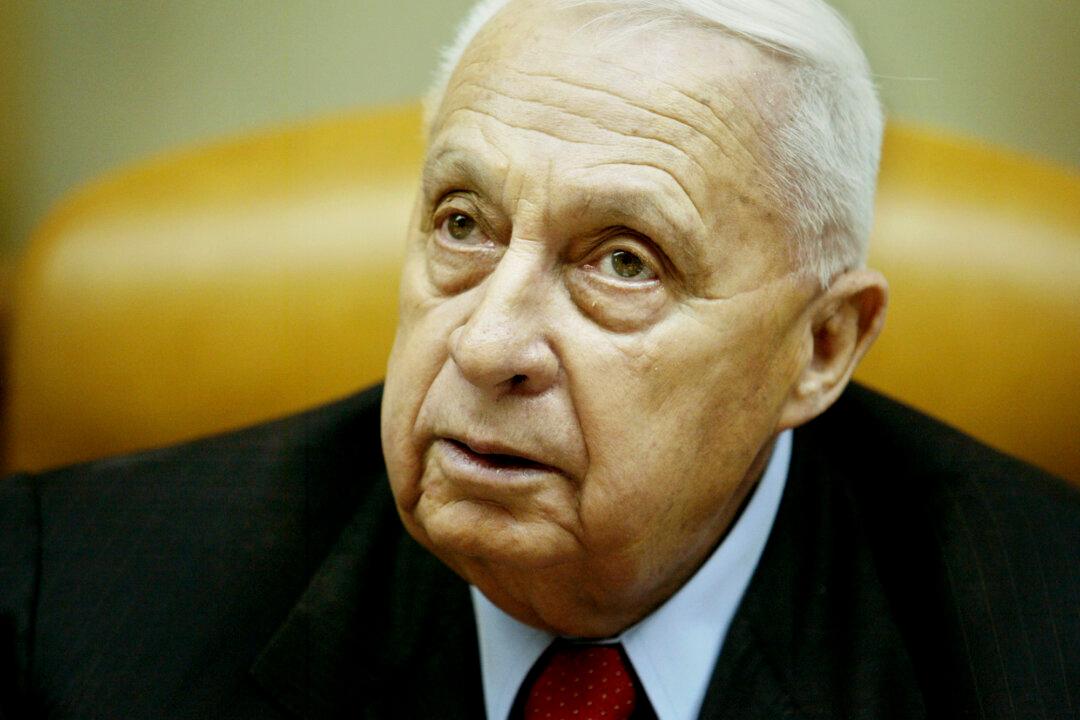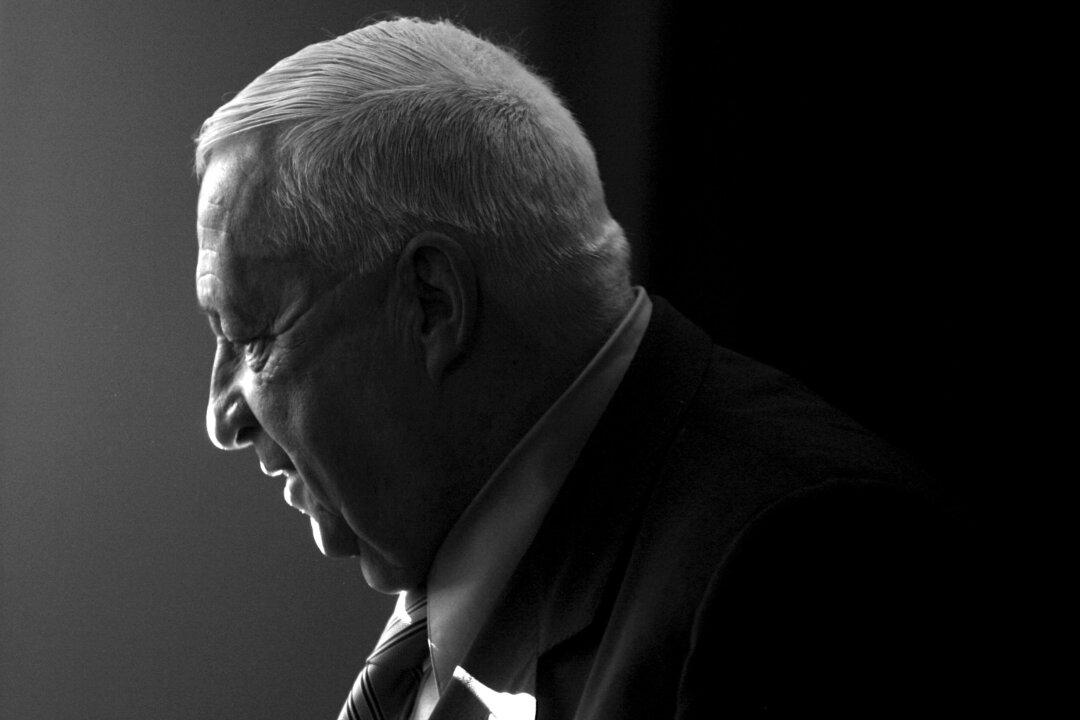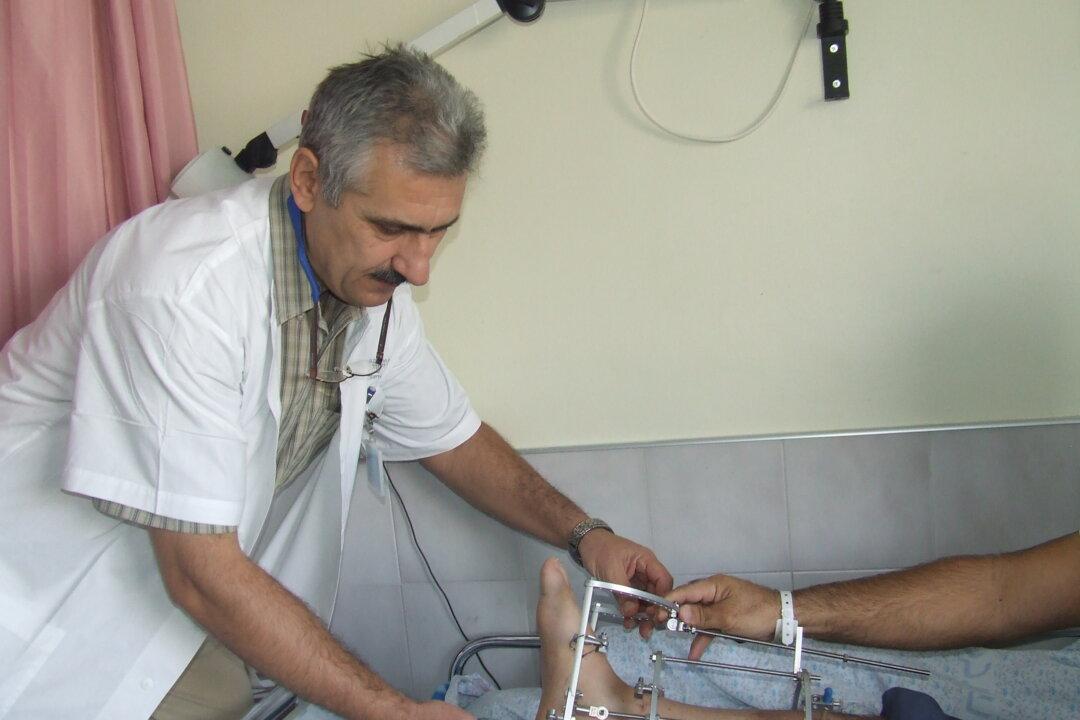TEL AVIV—The director general at Chaim Sheba Medical Center told a press gathering Thursday that former Israeli Prime Minister Ariel Sharon is in critical condition.
“In the last two days, there is a gradual decline in the functioning of a number of critical organs in Ariel Sharon’s body,” Professor Zeev Rotstein said. Rumors circulated on social media and on some Israeli blogs that Sharon had died, but a hospital spokesman said there has been no change in Sharon’s condition since it was announced Wednesday he is in critical condition.
Sharon, 85, was Israeli Prime minister until January 2006, when he entered a coma after suffering a major stroke.
Max Boot, a Jeane J. Kirkpatrick Senior Fellow in National Security Studies at the Council on Foreign Relations, wrote in 2006 about the change in perception of Sharon from the time he was elected to the time of his stroke.
“When Ariel Sharon became Israel’s prime minister in 2001, much of the world lamented that a fatal blow had been dealt to the Mideast peace process. He was widely denounced in European and Muslim states as a butcher and a war criminal whose goal was ethnic cleansing or possibly mass murder of the Palestinians.
“Now that Sharon is incapacitated, many of the same voices are mourning him—irony of ironies—as a peacemaker whose loss would make a resolution of the Israeli-Palestinian conflict harder to achieve,” wrote Boot.
Long a champion of Israeli settlers, Sharon’s policies changed drastically in 2005, when both negotiations and continued settlement of the Gaza Strip seemed impossible. He pulled Israeli forces out of Gaza and started to move toward separation.
Boot wrote: “Perhaps no one other than Sharon could have pulled off this feat—particularly the removal of the settlers—without causing massive upheaval. But Sharon’s lifelong history of fighting for the Jewish state reassured most Israelis that he would not do anything to endanger their security. The taunts of the ultra-right that he was a sellout rang hollow.”
Sharon had a bright military career, starting before the creation of the state of Israel as a member in the Haganah, a Zionist paramilitary organization. In 1953, he established an elite commando force, the 101 Unit, and earned fame for his skills as a soldier and commander in retaliatory attacks against Palestinian militias.
He participated in most of the Israeli wars as a high commander. In 1973, he established the Likud party, a fusion between the right-wing Gahal party and the Liberal party. He served in various high-level government positions over the years, including minister of defense.
One of his initiatives, the first Lebanon war in 1982, forced him to resign as defense minister after the Israeli Army failed to prevent the murder of thousands of Palestinian refugees by Christian Phalangists in the refugees camps of Sabra and Shatila. Lebanese Christian militiamen allied to Israel were responsible for the massacre at the camps, which were under Israeli control.
This did not have a lasting impact on his popularity, as he was elected prime minister in 2001. He was elected on a hard rightist line, but with his second term as prime minister starting in 2003, Sharon shifted to a more centrist attitude. In August 2005, he announced the Disengagement Plan, withdrawing Israeli troops from the Gaza Strip. He dismantled settlements from Gaza and from the West Bank.
In November 2005, he resigned from the Likud party and formed a new party “Kadima” (meaning “forward” in Hebrew). Weeks later, he suffered a stroke, but Kadima still went on to win the next elections.
While he has appeared to be in a vegetative state for the past eight years, scientists discovered in January 2013 that he may still be mentally functioning at a higher level than previously thought. A research team played a recording of his son’s voice, showed pictures of his family, and exposed him to other such stimuli.
Professor Alon Friedman, a neuroscientist at Ben-Gurion University of the Negev and a member of the research team, told The New York Times: “We were surprised that there was activity in the proper parts of the brain. ... It raises the chances that he hears and understands, but we cannot be sure. The test did not prove that.”
His family had previously reported that, at times, Sharon would make small movements, such as blinking his eyes and moving his fingers.
Tzipi Livni, the current minister of justice and the main negotiator in peace talks, had left the Likud party and gone with Sharon to the Kadima party. On Thursday, she wrote on her Facebook page: “I can’t stop thinking about Sharon.”
Epoch Times staff member Tara MacIsaac contributed to this report.




